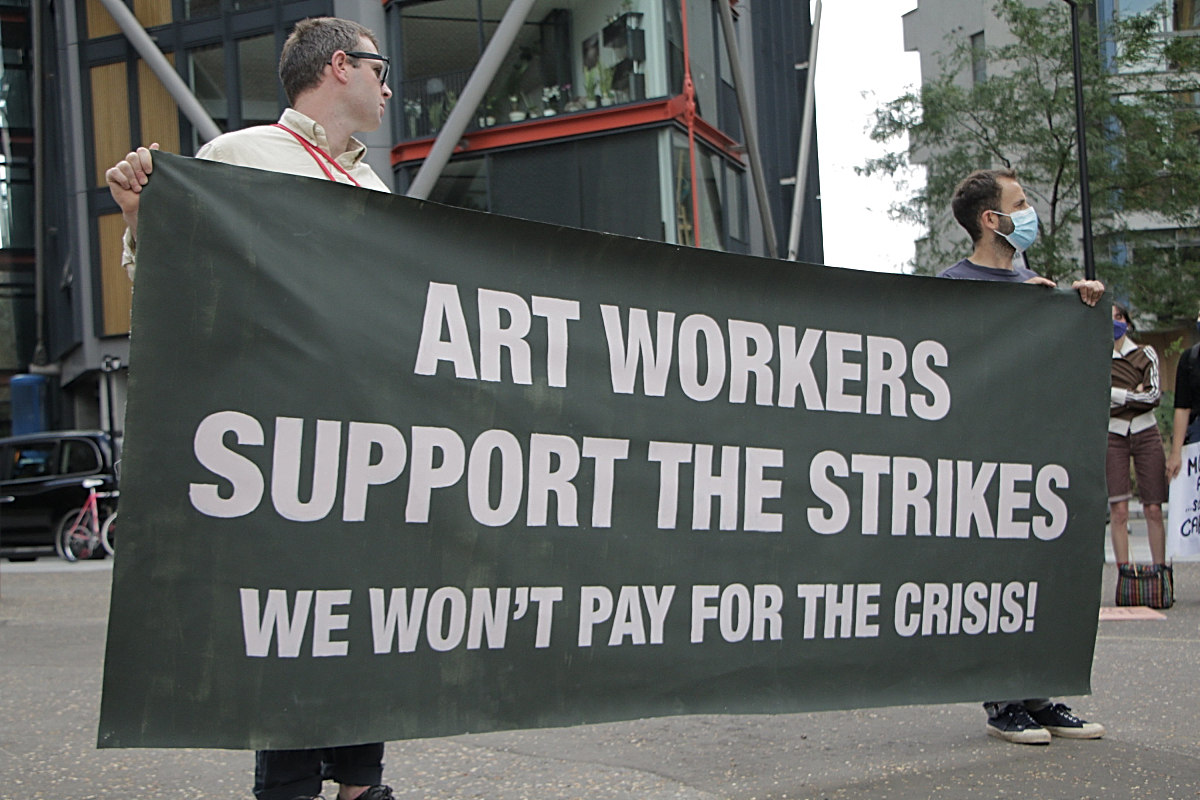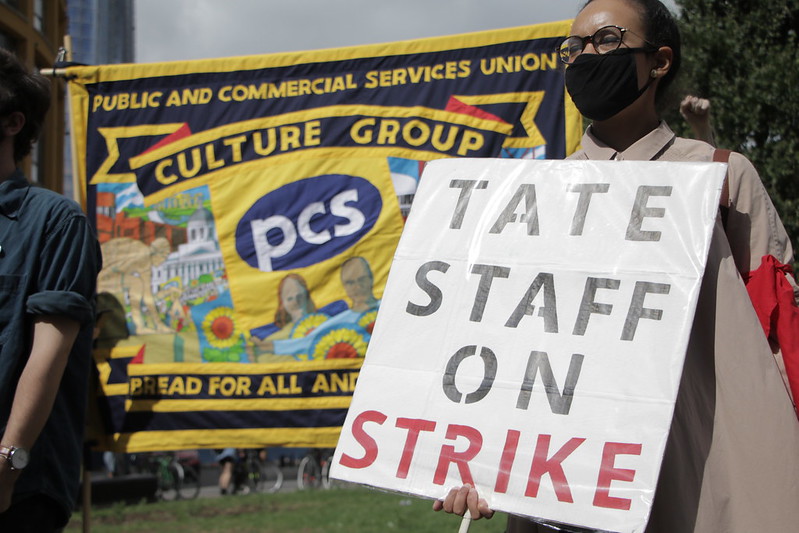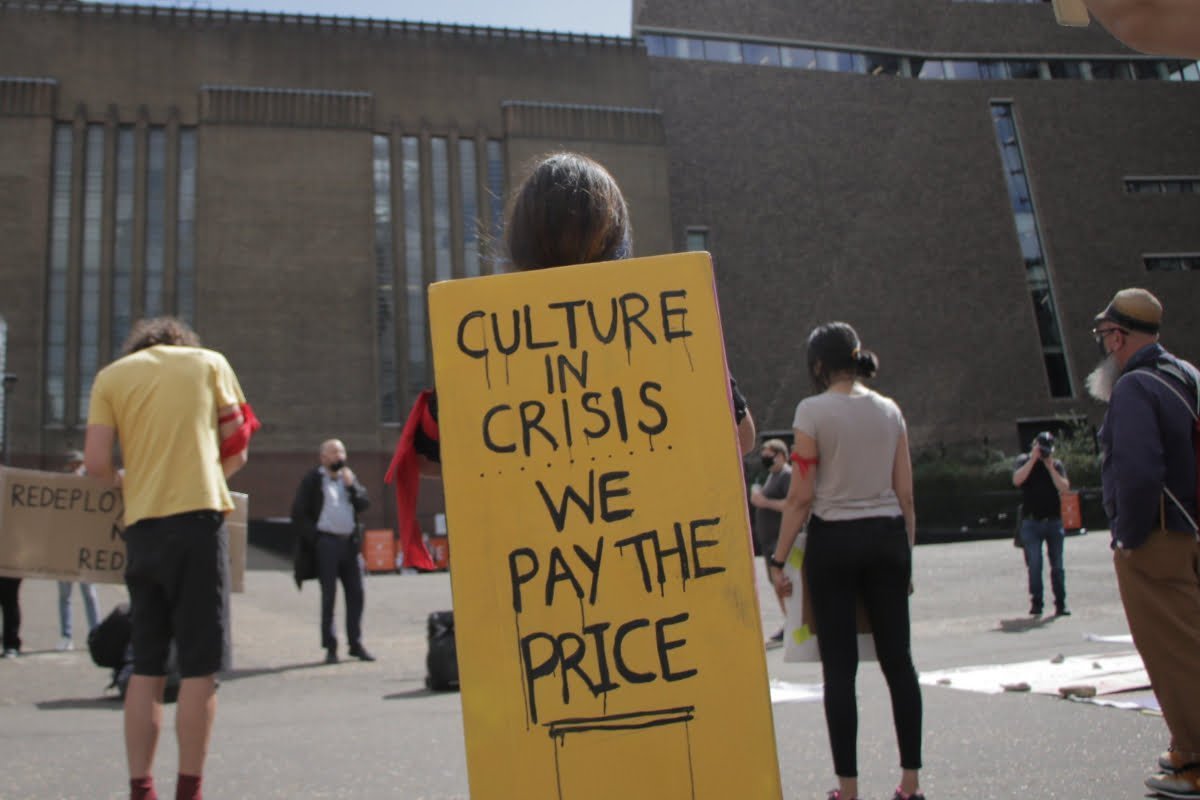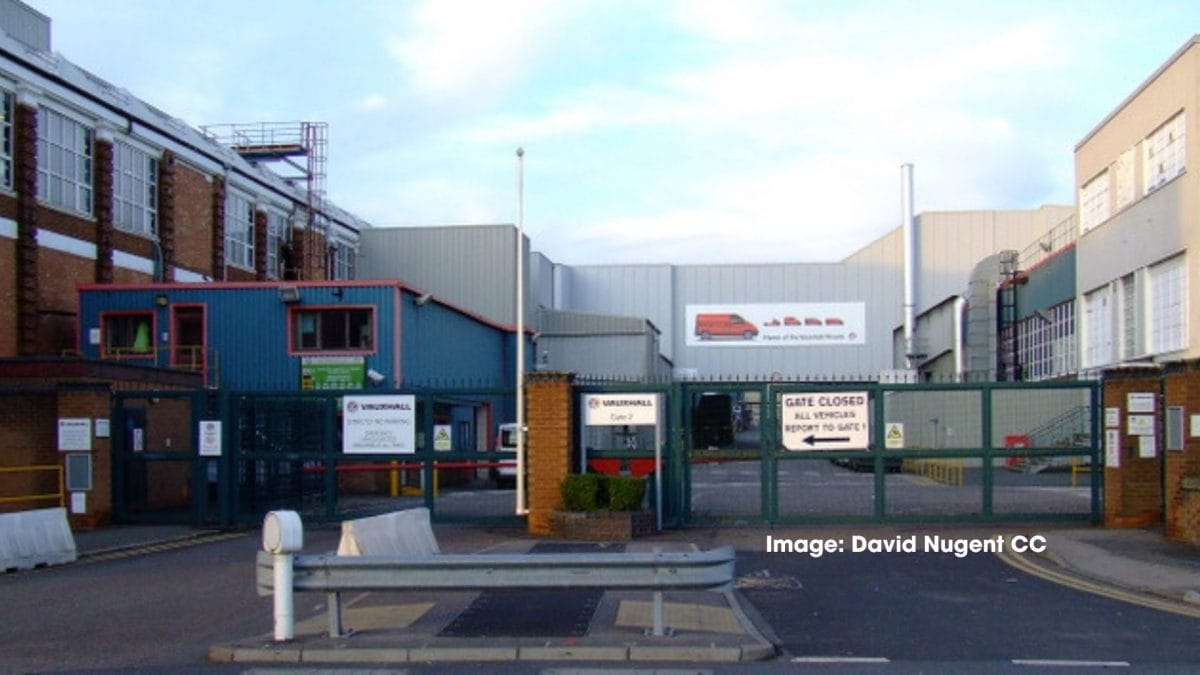Since the beginning of the pandemic, the Tories have shown their disdain for the arts, allowing the country’s culture sector to flounder whilst lavishing big business with generous handouts. Only a socialist alternative can save our arts.
The Tories recently announced their intentions to cut funding for arts subjects in higher education by a catastrophic 50%. This move would see the further smothering of opportunities for creativity and culture in society. Capitalism must be shown the door if the arts are to flourish!
The Office for Students, which is part of the Department for Education, stated:
“The government proposes that the courses that are not among its strategic priorities – covering subjects in music, dance, drama and performing arts; art and design; media studies; and archaeology – are to be subject to a reduction of 50 percent.”
This should come as little surprise. At the end of the day, capitalism is inimical to self-expression and creativity. In the midst of crisis and counter-reforms, subjects such as music and dance will always find themselves at the bottom of the pile in terms of priorities.
Such activities are becoming an exclusive jaunt for the rich. And this recent announcement will no doubt militate against working-class students pursuing such studies.
Botched ‘consultation’
 Gavin Williamson, the Education Secretary, attempted to justify this position by advising the OfS to “reprioritise funding towards the provision of high-cost, high-value subjects…We would then potentially seek further reductions in future years.” He also said that this cut would only affect “a small proportion” of income for higher education.
Gavin Williamson, the Education Secretary, attempted to justify this position by advising the OfS to “reprioritise funding towards the provision of high-cost, high-value subjects…We would then potentially seek further reductions in future years.” He also said that this cut would only affect “a small proportion” of income for higher education.
However small this proportion may be, the proposed reduction in funding – from £36 million to £19 million – is not insignificant. The all-out assault against the arts is part-and-parcel of years of neglect and brutal austerity.
The government led a short public consultation on the issue, between March and the beginning of May of this year. But this is nothing more than window dressing. A representative of the Musicians’ Union denounced the consultation as neither “legitimate”, “transparent”, nor “fair”.
Indeed, the union has claimed that the sector had just a few short weeks to “justify its existence”. There was no democratic process undertaken to involve students and lecturers. They were essentially handed down a fait accompli: cuts on the Tories’ terms.
Staff at the University of Leicester are already planning strike action after redundancies were issued to 26 workers. UoL vice chancellor, Professor Nishan Canagarajah, has indicated that a total of 145 posts could be at risk of redundancy.
This botched consultation reveals the dismissal of not only the arts, but the lives and livelihoods of its workers.
Disdain for the arts
 During the pandemic, the Tories have shown utter contempt and negligence for the arts and culture industries. When museums, theatres, cinemas and more were forced to close due to the pandemic, the government was offensively slow to react. Even when they did, all they were prepared to offer was a so-called ‘Culture Recovery Fund’ that was nowhere near enough to keep venues afloat.
During the pandemic, the Tories have shown utter contempt and negligence for the arts and culture industries. When museums, theatres, cinemas and more were forced to close due to the pandemic, the government was offensively slow to react. Even when they did, all they were prepared to offer was a so-called ‘Culture Recovery Fund’ that was nowhere near enough to keep venues afloat.
They have also made it clear that they want to dissuade students and workers from careers in the arts. In October 2020, an advert originally used to promote the government’s Cyber First programme in 2017 resurfaced. The advert shows a young ballet dancer with the caption: “Fatima’s next job could be in cyber. She just doesn’t know it yet.” It also urges students to “Rethink. Reskill. Retrain.”
For all the back-peddling on this particular advertisement, the reason why it remains etched in the minds of many is because it lifts the lid on the Tories’ cold and callous approach.
This disdain has only been reinforced by the latest cuts. The OfS has said that subjects such as art, music, drama and media studies are “not among its strategic priorities”. Instead, money is to be redirected from the arts to “subjects that support the NHS and wider healthcare policy, high-cost STEM [science, technology, engineering and mathematics] subjects and/or specific labour market needs”.
But this is complete claptrap. The Tories are at war with the NHS; they have left it on a life line in order to make the case for PFI and further privatisation. They have left it utterly unprepared for any sort of ‘shock’. And the pandemic has revealed their criminal neglect in a graphic way.
These cynical excuses go to show the depths of their ‘build back better’ demagogy.
The government has eagerly thrown billions of pounds over the last year into big businesses and the banks. Where has this ended up? On wild speculation; on inflating asset bubbles; and, most importantly, lining the pockets of the wealthy.
We hear no complaints about the ‘expense’ of this whatsoever. And that is because they are happy to preserve bosses’ profits while letting the arts and culture industries flounder.
The arts are not profitable for the capitalist class in the way that big pharma and businesses are. Even if – as the Public Campaign for the Arts has claimed – creative industries generate billions, working-class access to such opportunities will always be at the bottom of the pile. In a time of unprecedented crisis, the arts will inevitably be one of the first casualties.
The need for socialism
 There is also the prospect of students wishing to study in the creative industries having to fund themselves. Again, this would make studying impossible for working-class students.
There is also the prospect of students wishing to study in the creative industries having to fund themselves. Again, this would make studying impossible for working-class students.
Musician Jarvis Cocker has warned that the cuts “will really just put off people from a certain background”, and has criticised the government for treating the arts as “this expendable thing, as if it’s not important”.
The government is punishing poorer students for wanting to study creative subjects, and is turning art into a privilege of the wealthy.
Capitalism is killing the arts. This decaying system is suffocating the industry and all those who depend upon it for their livelihoods.
Without an organised fightback, the creative industries risk becoming another victim of the crisis of capitalism. We have seen the beginnings of culture workers taking militant action against this; and many are reaching the conclusion that capitalism is destroying the arts.
The system has our arts and culture by a chokehold. The Tories are unable to save our arts; instead, they are hurling access to culture and avenues for creativity backwards. Workers must take matters into their own hands.
The fight for creativity and culture is part of the fight against capitalism. We need to fight for a bold socialist programme that puts the needs of people and society above profit. Only then will we be able to break free from the straitjacket of ‘profitability’. Only then will the arts blossom.






